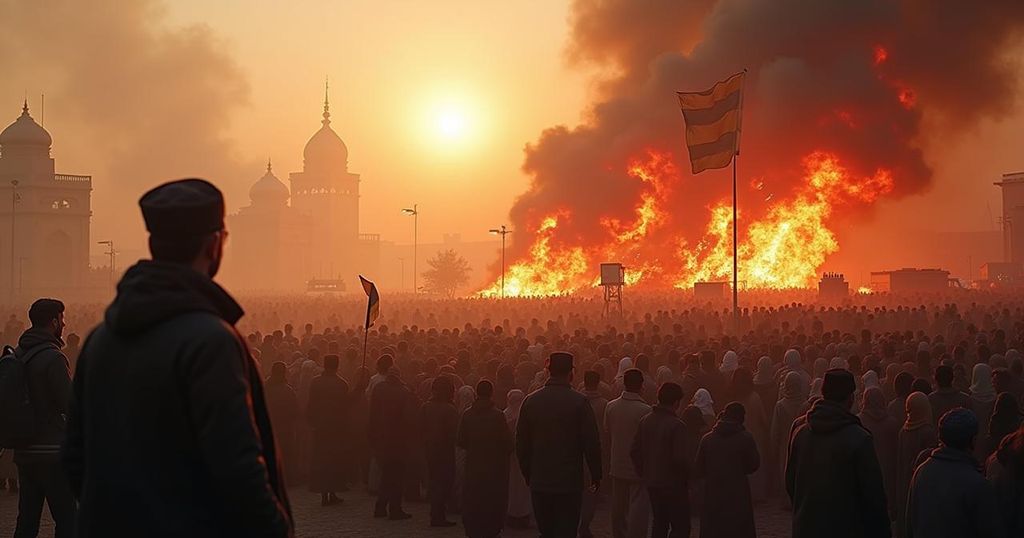The Rise and Fall of the Muslim Brotherhood in Egypt
The Muslim Brotherhood experienced a surge in political influence following the 2011 protests that led to Mubarak’s ouster, founding the Freedom and Justice Party and achieving electoral success. However, their governance faced significant opposition and culminated in a military coup in July 2013, resulting in substantial suppression and the labeling of the Brotherhood as a terrorist organization.
In January 2011, a nationwide youth protest movement emerged in Egypt against the regime of President Hosni Mubarak. The Muslim Brotherhood, initially hesitant, decided to support the protests, which ultimately led to Mubarak’s resignation in February. Following this political upheaval, the Brotherhood sought to establish a defined role in Egyptian politics. They founded the Freedom and Justice Party in April 2011, which, while based in Islamic principles, aimed to be inclusive and inclusive of women and Christians. By June 2011, the party received official recognition and subsequently won approximately 47 percent of the seats in the People’s Assembly elections held between November 2011 and January 2012. This electoral success positioned them favorably in the drafting of a new constitution. The topic of the presidency arose when Khairat al-Shater was selected as the Brotherhood’s candidate in 2012. However, due to his previous imprisonment, he was disqualified, leading the Brotherhood to nominate Mohammed Morsi instead, who subsequently won the presidency in June 2012. Morsi’s administration, however, faced significant opposition over economic struggles, decreased public services, and increasing security challenges. This unrest culminated in mass protests demanding his resignation, prompting a military ultimatum on July 1, 2013. Morsi’s refusal to step down led to a military coup on July 3, following which he and several leaders from the Brotherhood were arrested. The subsequent period saw harsh repression of the Brotherhood, including violent clashes with security forces, mass arrests, and the designation of the group as a terrorist organization in late 2013. Thousands of alleged Muslim Brotherhood supporters faced arrests and mass trials, resulting in severe consequences such as death sentences and life imprisonment for many leaders. Consequently, the organization faced a complete crackdown, signaling a return to an authoritarian regime reminiscent of the Mubarak era.
The Muslim Brotherhood, founded in 1928, is one of the oldest and most influential Islamist movements in the world. It espouses a blend of political engagement and social conservatism and has extensive networks throughout the Middle East and North Africa. The organization gained prominence during the Arab Spring in 2011, particularly in Egypt, where it played a significant role in the protests against the Mubarak regime. Their subsequent rise in the political arena saw them adopt a political party structure, which led to both electoral victories and subsequent struggles against military and secular opposition following Morsi’s presidency. The dynamics of the Brotherhood’s interaction with political systems have brought them into the global spotlight as influential actors in contemporary Islamist politics.
The Muslim Brotherhood’s trajectory from an influential political force following the Arab Spring to a suppressed organization illustrates the complexities of transitional politics in Egypt. Their initial involvement in the protests against Mubarak marked a significant shift in their political engagement. However, internal divisions, challenges from military leadership, and widespread societal discontent led to their rapid decline after Morsi’s removal and an ensuing violent crackdown. The designation of the Brotherhood as a terrorist organization exemplifies the severe ramifications of this political upheaval, reshaping the landscape of Egyptian politics significantly.
Original Source: www.britannica.com




Post Comment